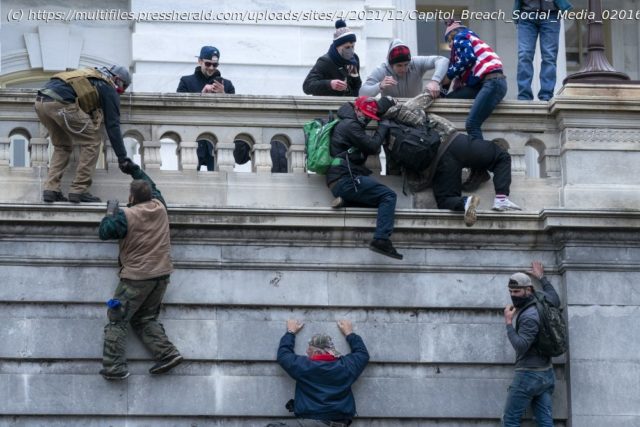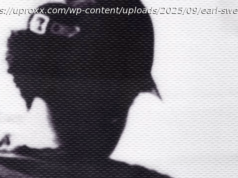Much of the most damning evidence comes from their own words and videos.
For many rioters who stormed the U.S. Capitol on Jan.6, self-incriminating messages, photos and videos that they broadcast on social media before, during and after the insurrection are influencing even their criminal sentences. Earlier this month, U.S. District Judge Amy Jackson read aloud some of Russell Peterson’s posts about the riot before she sentenced the Pennsylvania man to 30 days imprisonment. “Overall I had fun lol,” Peterson posted on Facebook. The judge told Peterson that his posts made it “extraordinarily difficult” for her to show him leniency. “The ‘lol’ particularly stuck in my craw because, as I hope you’ve come to understand, nothing about January 6th was funny,” Jackson added. “No one locked in a room, cowering under a table for hours, was laughing.” Among the biggest takeaways so far from the Justice Department’s prosecution of the insurrection is how large a role social media has played, with much of the most damning evidence coming from rioters’ own words and videos. FBI agents have identified scores of rioters from public posts and records subpoenaed from social media platforms. Prosecutors use the posts to build cases. Judge now are citing defendants’ words and images as factors weighing in favor of tougher sentences. As of Friday, more than 50 people have been sentenced for federal crimes related to the insurrection. In at least 28 of those cases, prosecutors factored a defendant’s social media posts into their requests for stricter sentences, according to an Associated Press review of court records. Many rioters used social media to celebrate the violence or spew hateful rhetoric. Others used it to spread misinformation, promote baseless conspiracy theories or play down their actions. Prosecutors also have accused a few defendants of trying to destroy evidence by deleting posts. About 700 people have been charged with federal crimes related to the riot. About 150 of them have pleaded guilty. More than 20 defendants have been sentenced to jail or prison terms or to time already served behind bars. Over a dozen others received home confinement sentences. Rioters’ statements, in person or on social media, aren’t the only consideration for prosecutors or judges. Justice Department sentencing memos say defendants also should be judged by whether they engaged in any violence or damaged property, whether they destroyed evidence, how long they spent inside the Capitol, where they went inside the building and whether they have shown sincere remorse. Prosecutors recommended probation for Indiana hair salon owner Dona Sue Bissey, but Judge Tanya Chutkan sentenced her to two weeks in jail for her participation in the riot.






